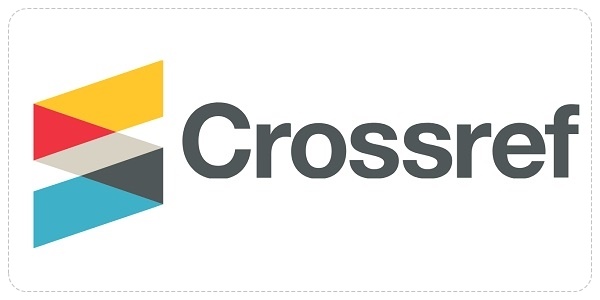PERSEPSI GURU TENTANG PRAKTIK KEPEMIMPINAN DAN MANAJEMEN SEKOLAH DALAM MENGEMBANGKAN ORGANISASI PEMBELAJAR
Abstract
This study determines the extent to which the relationship between teacher perceptions of effective of school leadership and management in developing organizational learning and Mathematics and Science teachers’ academic optimism of Junior High School in Pangkal Pinang District. This study uses a quantitative approach with the descriptive correlational method and multivariate analysis. The number of samples is 60 teachers. The instrument is self-administered and Likert scale model survey. Results of hypothesis testing showed positive and significant relationship between teacher perceptions of leadership and management of school practices in developing an organizational learning and academic optimism of teachers, while the context have both positive and negative correlation with teacher academic optimism.
Keywords: organizational learning, self-evaluation, academic optimism
Keywords
Full Text:
PDFReferences
Bandura, A. 1997. Self-Efficacy: The Exercise of Control. New York: W. H. Freeman.
Brown, J.S. dan Duguid, P. 1991. Organizational Learning and Communities of Practice: Towards a Unified View of Working, Learning and Innovation. Organizational Science, 2, h 40-57.
Bryk, A.S. dan Schneider, B. 2002. Trust in Schools: A Core Resource for Improvement. New York, NY: Russell Sage Foundation.
Dixon, N. 1994. The Organisational Learning Cycle: How We Can Learn Collectively. New York: McGraw-Hill.
Goddard, R.D., Hoy, W.K. dan Woolfolk Hoy, A. 2000. Collective Teacher Efficacy: Its Meaning, Measure, and Impact on Student Achievement. American Educational Research Journal, 37(2), h 479-507.
Hoy, W.K., Tarter, C.J., dan Woolfolk Hoy, A.W. 2006. Academic Optimism of Schools: A force for Student Achievement. American Educational Research Journal, 43(3), h 425-446.
Hoy, W. K. dan Tschannen-Moran, M. 1999. Five Faces of Trust: An Empirical Confirmation in Urban Elementary Schools. Journal of School Leadership, 9. h 184-208.
Kementerian Pendidikan Nasional. 2010. Peraturan Menteri Pendidikan Nasional Nomor 2 tentang Rencana Strategis Kementerian Pendidikan Nasional 2010-2014. Indonesia: Kemdiknas. Tersedia: http://planipolis.iiep.unesco.org/upload/Indonesia/Indonesia%20UNDAF.pdf.
Kementerian Pendidikan Nasional. 2007b. Peraturan Menteri Pendidikan Nasional Nomor 19 tentang Standar Pengelolaan Pendidikan oleh Satuan Pendidikan Dasar dan Menengah. Jakarta: Kemdiknas.
Kementerian Pendidikan Nasional. 2007a. Peraturan Menteri Pendidikan Nasional Nomor 13 tentang Standar Kepala Sekolah. Jakarta: Kemdiknas.
Kotter, J.P. (1996). Leading Change. New York: Harvard Business School Press.
Louis, K.S. 1994. Beyond ‘Managed Change’: Rethinking how school improve. School Effectiveness and School Improvement, 5(1), h 2-24.
MacGilchrist, B., Myers, K., dan Reed, J. 2004. The Intelligent School. London: Sage.
March, J.G. 1996. Exploration and Exploitation in Organizational Learning. Cohen, M.D. dan Sproull, L.S. (Eds.). Organizational learning, h 101–123. Thousand Oaks, CA: Sage.
Mascall, B., Leithwood, K., Straus, T., dan Sacks R. 2008. The Relationship between Distributed Leadership and Teachers’ Academic Optimism. Journal of Educational Administration, 46(2), h 214-228 halaman.
Mishra, A. K. 1996. Organizational Responses to Crisis: The Centrality of Trust. In R. Kramer & T. Tyler (Eds.). Trust in Organizations, h 261-287. Thousand Oaks, CA: Sage.
Mulford, Bill. 2005. Quality evidence about leadership for Organizational and Student Learning in Schools. School Leadership & Management, 25(4), h 321-330.
OECD. 2010. PISA 2009 Results: What Students Know and Can Do – Student Performance in Reading, Mathematics and Science(Volume I). Canada: OECD Publishing.
Organ. D. W. 1988. Organizational Citizenship Behavior: The Good Soldier Syndrome. Lexington, MA: Lexington Books.
Pedder, D. dan MacBeath, J. 2008. Organisational Learning Approaches to School Leadership and Management: Teachers’ Values and Perceptions of Practice. School Effectiveness and School Improvement, 19(2), h 207-224.
Riduwan dan Akdon. 2007. Rumus dan Data dalam Aplikasi Statistika. Bandung: Alfabeta.
Podsakoff, P., MacKenzie, S., Moorman, R., dan Fetter, R. 1990. Transformational Leader Behaviors and Their Effects on Followers’ Trust in Leader Satisfaction and Organizational Citizenship Behaviors. Leadership Quarterly, 1(2), h 107-142.
Ross, J.A., Hogaboam-Gray, A. dan Gray, P. 2004. Prior Student Achievement, Collaborative School Processes and Collective Teacher Efficacy. Leadership and Policy in Schools, 3(3), h 163-188.
Rotter, J. B. 1967. A New Scale for the Measurement of Interpersonal Trust. Journal of Personality. 35. 651-665 halaman.
Senge, P.M. 2006. TheFifth Discipline. New York: Doubleday.
Shoraku, Ai. 2008. Educational Movement Toward School-Based Management in East Asia: Cambodia, Indonesia and Thailand. Paris: UNESCO.
Smith, C.A., Organ, D.W. dan Near, J.P. 1983. Organizational Citizenship Behavior: Its Nature and Antecedents. Journal of Applied Psychology. 68(44). h 653-663.
Tabachnick, B.G. dan Fidel, L.S. 2007. Using Multivariate Statistics (Fifth Edition). USA: Pearson Education Inc.
Tschannen-Moran, M. dan Hoy, W.K. 2000. A Multidisiplinary Analysis of the Nature, Meaning, and Measurement of Trust. Review of Educational Research. 70(4). h 547-593.
Van Dyne, L. dan LePine, J. A. 1998. Helping and Voice Extrarole Behavior: Evidence of Construct and Predictive Validity. Academy of Management Journal. 41. h 108-119.
DOI: https://doi.org/10.17509/pedagogia.v14i2.3876
Refbacks
- There are currently no refbacks.
INDEXED BY

This work is licensed under a Creative Commons Attribution-ShareAlike 4.0 International License















